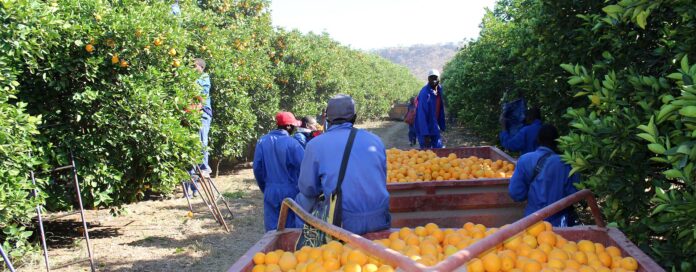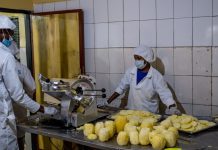Chris Mahove
The citrus industry value chain is playing a crucial role in the economic growth and development of Zimbabwe, contributing between 3-4 % to the country’s Growth Domestic Product.
This was said by the Acting Chief Director, Research Services Department, Agricultural Research, Innovation, and Development Directorate in the Ministry of Lands, Agriculture, Fisheries, Water and Rural Development D Kutshwayo at a workshop to present the R-SAT results on the citrus value chain.
Citrus products have been in high demand the world over since the advent of the COVID-19 pandemic in December 2019 due to the Vitamin C element which is highly recommended as one of the remedies that help contain the pandemic.
“The Citrus value chain has over the years gained importance, contributing a growing share to the gross domestic product (3-4%) and employment (36 720) in Zimbabwe,” Kutshwayo said.
He, however, noted new requirements under regulation (EU 2019-2027), which were introduced to establish uniform conditions for the implementation of special measures against a range of citrus pests that were a known pathway into the EU of serious plant health problems which could damage EU agriculture or the environment were a hindrance to the citrus industry’s export drive.
The measures include stringent requirements covering the export of citrus to prevent the introduction of citrus leaf spot, non-European fruit fly, and the false codling moth among others.
“These pests occur in Zimbabwe and two of them-citrus black spot and false codling moth are frequently being intercepted in the international markets. This calls for effective dialogue and engagement between public and private sectors,” he said.
Kutshwayo said there was a need for all stakeholders to agree on actions needed to ensure that exported citrus was free of the designated pests by identifying and agreeing on actions to be taken by private sector operators at all stages from production to export.
Citrus Growers Association of Zimbabwe chairman, John Perret said the dependence of the industry on imported chemicals for the treatment of pests was making production costs higher.
“All our chemicals are imported, all your research work is done in the UK, Germany; research has been done…there is no chemical production company in Zimbabwe so everything is imported,” he said in an interview on the sidelines of the workshop.
He said the industry was by nature capital intensive as the turn-over took several years.
“We need long term capital, we need low-interest rates and we basically need patience; we capital with low interests because you need seven to eight years depending on the variety to repair your life so the sort of finance for people to come forward and support the citrus industry,”
He said the industry was growing albeit at a very slow pace..
“In the citrus industry things take time so you have to put that in your thinking, your program, your attitude and how you progress the industry,” he said.
Perret said there were vast opportunities in the export market for the Zimbabwean citrus industry, adding that producers rarely met the market demand.
“The export market is there, the products are in demand especially if we get to produce quality and you get it at the right time and you produce a quality variety of fruit; the market is good. We are exporting to Russia, EU, UK and the North, West side of things and we got the UAE and the whole of the Middle East and again to the Far East, so the markets are there,” he said.
He added “We are far behind in terms of meeting the export demand; we can expand our industry because the market is big and we have got a very good window in the market.
“We are only producing about 51 000 tonnes for export and we are very low because we get to about 19 years before we can produce up to full capacity and we are growing very slowly.
“Citrus is a high volume crop and low value, so the volumes are enough to keep us going but it’s not like your berries or peas; all those are high valued crops and low volumes, citrus has got 0 per cent rehired volume,”.
Perret said they were exporting first product without any value addition other than putting them into boxes and making them look nice and good.
The industry exports oranges, lemons, and mandarins and has 3 700 hectares under live fruits


















